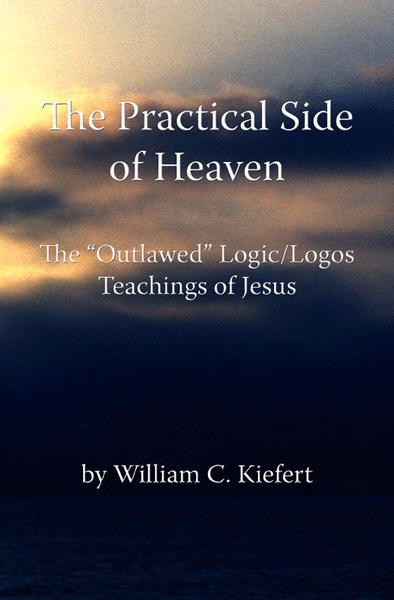
Learn more about The Practical Side of Heaven
Copyright William C. Kiefert. All Rights Reserved.
Chapter Two, Part Fifteen: Nonjudgmental Logic
At first, nonjudgmental logic may appear paradoxical, by which I mean, contrary to common belief, unbelievable, or even absurd, but may, in fact, be true. This can be expected. The sense of absurdity that nonjudgmental logic invokes comes from subconsciously judging it on the basis of traditional logic, which is contrary to nonjudgmental logic. The same sense of absurdity is probably felt when we try to understand Einsteinian physics and quantum mechanics by judging them on the basis of judgmental logic. If we used nonjudgmental logic, on the other hand, we might be able to understand, because nonjudgmental logic, unlike existing logic, is compatible with the new Sciences.
Judging nonjudgmental logic, and our new sciences, by traditional logic, then, can be compared to judging apples on the basis of oranges. We must judge this new logic and the new Physics on their own merits, not existing systems of logic. Nobel Prize winner Wolfgang Pauli recognized the need for a new system of logic when he said, “What must be regarded as irrational today may be described by rational theories in the future.”
The fact is that if we judge nonjudgmental logic within the rules of our present system of logic, we cannot understand nonjudgmental logic. In order to understand it, we have to get past judging it in terms of judgmental logic. This may not be easy because we tend to think that how we reason is inborn. But, this is not true. If it were, all humans would reason in the same way … and we don’t. Most civilized beings, for example, judge that they are individuals in nature. Many Aborigines, originally at least, considered themselves and nature as one.
How we reason, then, is determined by our experiences, not our heredity. Therefore, we can logically assume that how we now judge may not be the only way to judge. And this being true, what we now judge to be reality may not be the whole of reality.
Note: Some argue that we would not need an additional system of logic if we applied traditional rules to specific natures within multiple nature classes. I agree that this could work, but not until we create a classification system that recognizes the difference between single and multiple nature classes, and creates a language system to convey the idea of multiple natures within a class that is unique from our present concept of plurality. For as it stands, we have no way to define what a plurality of different natures within the same class means. And if we cannot define what we mean, we have no objective way to consider the diversity of natures in multiple-nature classes.
We would, for example, have to create a way to generalize without the need to classify each member of multiple nature classes by a different name. A classification system that could do that is difficult to imagine. Some multiple nature classes, like humanities, include numerous different natures. In effect, until we can create a language system that can generalize without sacrificing the unique qualities of each nature within multiple nature classes, an additional system of logical laws is required to fill the gap between our present system of logic and our expanding understanding of nature.
The following is my attempt to explain nonjudgmental logic. Much license must be granted me because I am trying to explain nonjudgmental logic in the context of traditional logic, which is inherently contradictory to it.
